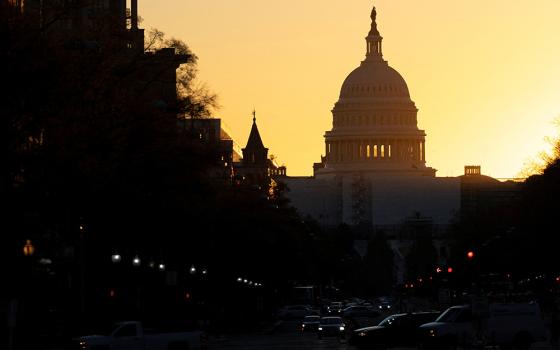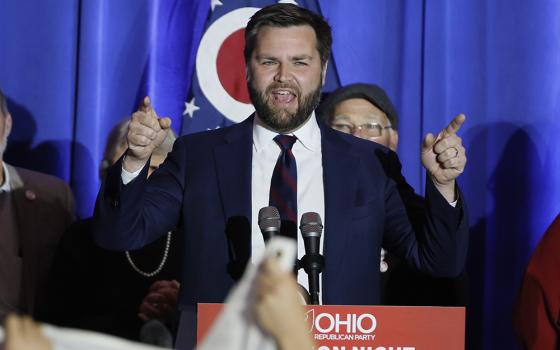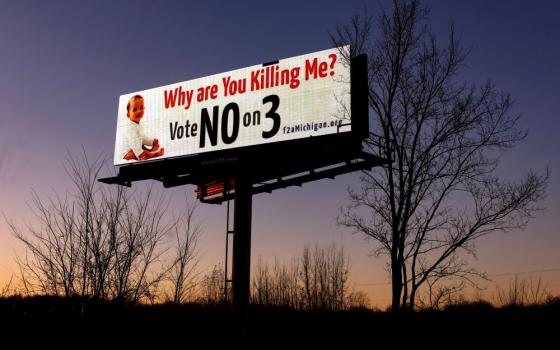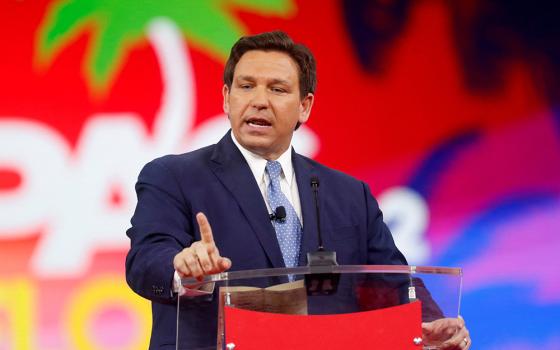People in Lilburn, Georgia, attend a Latino voter registration event Dec. 7, 2020. (CNS photo/Dustin Chambers, Reuters)
At his Substack newsletter, historian Timothy Snyder writes about how the Russo-Ukrainian war might end. His approach to the topic is grounded in his deep historical research, which is nowhere more vital than in his correct appraisal of Valdimir Putin's nuclear saber-rattling: "there is a certain temptation to concede mentally to nuclear blackmail. Once the subject of nuclear war is raised, it seems overwhelmingly important, and we become depressed and obsessed. That is just where Putin is trying to lead us with his vague allusions to nuclear weapons." We need to inoculate ourselves against Putin's propaganda. This war will end because Putin needs his troops back home. Snyder writes of the Russian president: "For all of his personal attachment to his odd ideas about Ukraine, I take it that he is more attached to power."
The New York Times conducted a focus group with 10 Latino voters, posing a variety of questions about the state of the country and their political views. Five self-identified as Republican or leaning Republican, three as independent and two as leaning Democrat. The issue that emerges that seems to be flying under the political radar? Housing. It is kind of funny to read the Times state: "It's a cliché at this point to say that Latino voters are politically powerful, that they often hold complicated political positions, that it's not a given that they'll vote for Democrats." No newspaper has done more on its editorial pages to advance the illiberal idea that demographics is destiny that the Times.
In the Chicago Tribune, lawyer John O'Malley looks at the child protection policies put in place by the Archdiocese of Chicago 30 years ago and the effects they have had. A mix of accountability for past crimes, training for current and future ministers, and constant vigilance is the key.
Advertisement
If you disliked Ross Douthat's column on the 60th anniversary of Vatican II, it was the height of theological achievement compared to Michael Brendan Dougherty's column on the same topic at National Review. The latter is puerile as well as reactionary. “Catholic theologians and bishops have been turned into sponges, soaked in metaphors that have no precise theological content but which retain an acid-wash quality, an iconoclasm aimed at a church and a theology of the past that is half understood, at best," he writes. "So modernists such as Hans Kung could say that Vatican II promoted a 'communio model of the church' over and against an 'absolutist pyramidal model.' " Should we alert Dougherty to the fact that the "communio model of the church" is the model embraced by such "modernists" as Joseph Raztinger? Doughtery concludes by citing Beavis, of "Beavis and Butt-Head," which seemed very apt.
At Politico, reporter Andrew Atterbury looks at the ways Florida Gov. Ron DeSantis is trying to reshape higher education. "Many of these GOP-backed laws drew condemnation from Democrats and teachers' unions, who accuse Republicans of politicizing children's education," Atterbury writes. "But they are also proving popular among conservatives and in particular many parents that have grown frustrated by their local education systems." It is that last group, many parents, that should worry Democrats, who seem to have lost the ability to recognize how out-of-touch they are with middle America.
In The Washington Post, former Maryland state senator Gerald Winegrad, writes about the failure of the Environmental Protection Agency to penalize states that have failed to meet guidelines for cleaning up the Chesapeake Bay, one of our country's most valuable natural resources. "The states' failure to do what needs to be done to turn the tide is met by an enforcement agency that refuses to impose sanctions and instead agrees on a recalibrating delay," he concludes.








